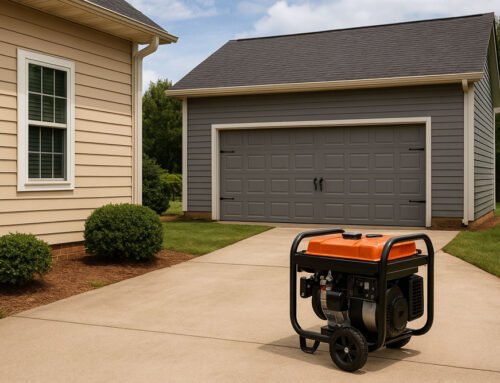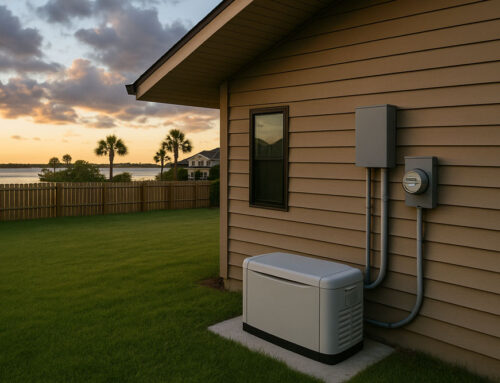In coastal North Carolina, storm season isn’t a question of “if”—it’s a matter of “when.” Power outages caused by hurricanes, tropical storms, and even inland flooding can leave homes vulnerable for hours or days. That’s why owning a standby generator is only part of the equation. Keeping it maintained is what ensures it performs when the power fails.

We’ve seen far too many cases where a homeowner invested in a quality generator but neglected routine upkeep—only to find out it wouldn’t start during an emergency. Generators, like any other mechanical system, require periodic inspection and service to remain reliable. That’s where professional maintenance makes all the difference.
Our maintenance services focus on prevention. We check fluid levels, change the oil and filters, test the battery, inspect wiring connections, and ensure the control panel and transfer switch are functioning properly. Each visit also includes running the unit under load to simulate a real outage. This gives us—and you—complete confidence that the system will activate instantly when it’s needed most.
Storm season maintenance should ideally happen before severe weather hits. Early spring and late summer are the best times for a tune-up to avoid the seasonal rush. A well-maintained generator provides seamless backup power, allowing your home to stay cool, safe, and connected during grid failure.
Batteries are one of the most common failure points in neglected generators. Over time, batteries lose charge or develop corrosion, especially in humid climates. If the battery fails, the generator won’t start—regardless of fuel level or system size. That’s why we check voltage, clean terminals, and test cold-cranking amps to ensure reliable ignition every time.
Another issue we frequently catch during maintenance is low coolant or oil levels. Running a generator with improper lubrication can cause internal wear and expensive damage. Our technicians replace oil and filters at regular intervals based on manufacturer guidelines and usage hours. This helps extend the life of your generator and ensures quiet, smooth performance under load.
We also calibrate settings and check for firmware updates, especially in smart-enabled systems. A standby generator is only as smart as its most recent update. With advances in remote monitoring and load management, staying current ensures optimal efficiency and system diagnostics.
Fuel quality is another concern for propane and natural gas units. We inspect fuel lines for leaks or pressure drops and ensure the regulator is delivering consistent flow. Any issues with fuel delivery can lead to rough starts, power fluctuations, or system shutdowns—all problems we prevent with proactive service.
Beyond performance, regular maintenance protects your investment. Manufacturers require documented maintenance to honor warranties. If your system fails during an emergency and hasn’t been serviced according to schedule, you could face repair costs that would’ve been covered. Our service agreements include records and reminders to keep your system eligible for full warranty coverage.
We also inspect the generator’s surroundings. Leaves, pests, salt air, and heavy rains can cause issues if the system isn’t protected or if debris blocks airflow. We ensure proper ventilation and cleanliness around the unit to avoid heat buildup or corrosion.
Some homeowners assume that running a generator monthly for a few minutes is enough. While that’s a helpful function, it doesn’t replace a full inspection. Only a professional service covers all the mechanical, electrical, and environmental factors that impact generator health.
You invested in a standby generator to avoid being left in the dark. Routine maintenance ensures that investment pays off when the storm arrives.
Contact Powerhound at (910) 296-3536 or visit our Facebook page to schedule your seasonal generator maintenance and ensure you’re ready before the next outage.
#StormSeasonPrep #GeneratorMaintenance #PowerhoundService





